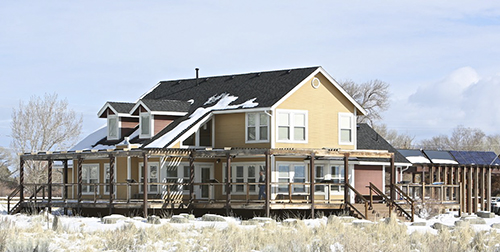River Fork Ranch is an 800-acre preserve owned and operated by the Conservancy.
- Enjoy hiking, trail running, wildlife viewing and more
- Explore the exciting watershed sculptures that are restoring the river as part of The Nature of Art
- Learn about how our conservation efforts are helping balance the needs of people and nature on the Carson River
- See how we’re using technology to protect Western pond turtles on the Carson River
- Our LEED® Platinum Certified Whit Hall Interpretive Center is a great local showcase of sustainable design. Scroll down to learn about the building's cool, green features.
- Find out how you can become a volunteer >>
The Conservancy secured the long-term protection of key wetland, meadow and riparian habitats along a two-mile section of the Carson River by purchasing the River Fork Ranch in 2000.
Located where the east and west forks of the Carson River meet near Genoa, River Fork Ranch is both a nature preserve and a working cattle operation. The ranch’s riparian corridor and patchwork of pastures, meadows, and wetlands support a robust and diverse wildlife population including bald eagles, sandhill cranes, leopard frogs, monarch butterflies and mule deer.
WHAT WE'RE DOING
Floodplain Protection: By giving rivers room to swell beyond their banks in times of high flow, undeveloped floodplains reduce flood risk to communities downstream while allowing groundwater aquifers to recharge and natural water purification processes to function. River Fork Ranch permanently protects more than 800 acres of floodplain at the confluence of the East and West Forks of the Carson River.
Habitat Restoration: A legacy of unrestricted grazing, irrigation diversions and dredging of the river channel resulted in degraded ecological conditions including impaired alluvial function, conversion to exotic plant species and reduced riparian viability. Active restoration work is ongoing at River Fork Ranch to reverse these effects, enhance important riparian, meadow and wetland habitat and create conditions that allow for natural processes including overbank flow and channel migration.
Contractors and volunteers have created nearly 40 acres of emergent marsh, wet meadow and riparian habitat along the East Brockliss Slough and West Fork of the Carson River at River Fork Ranch. When re-vegetation efforts fully take root, the native plants will help filter pollutants, reduce bank erosion and provide important habitat for the preserve’s incredible diversity of wildlife.
In addition to our traditional restoration efforts, we are bringing conservation and art together at our River Fork Ranch Preserve in an innovative partnership with the Center for Art + Environment at the Nevada Museum of Art, for a project called The Nature of Art, to benefit nature with living watershed sculptures. Learn more about The Nature of Art.
Sustainable Agriculture: Before the Conservancy purchased River Fork Ranch, the property had supported cattle for over a century. Today the Conservancy is partnering with Ranch One, Carson Valley’s historic first ranch, to ensure that this classic western ranching landscape endures. Ranch One raises all-natural grass-fed beef at River Fork Ranch using sustainable methods that meet both agricultural and conservation objectives. A rest-rotational grazing plan and exclusion of livestock from the ranch’s sensitive riparian and wetland areas protects wildlife habitat; keeping the ranch in production and selling local beef benefits the community.
Public access and education: The trail system at River Fork Ranch provides an unprecedented opportunity to access the Carson River, visit its wetland and wet meadow habitats, and see the Conservancy’s restoration work first-hand. In addition, a state-of-the-art education center – the Whit Hall Interpretive Center - at the site serves as a hub for the trail system, gives visitors access to the Carson River’s story and demonstrates a more sustainable way of life in the Carson Valley and beyond.
THE WHIT HALL INTERPRETIVE CENTER
The Whit Hall Interpretive Center is the hub of the Nature Conservancy’s community outreach and education efforts along the Carson River. The Whit Hall Interpretive Center is open for school visits and other scheduled events and activities throughout the year.
Taking advantage of Nevada’s abundant sunshine, the Whit Hall Interpretive Center uses both active and passive solar technology. Photovoltaic cells directly convert sunlight into electricity, solar panels heat our hot water and strategically placed triple pane windows provide natural lighting for interior spaces
Did you know that cattail filled wetlands are natural water purifiers? The Whit Hall Interpretive Center uses a fully lined and specially constructed wetland to mimic this natural purification process. This relatively inexpensive and environmentally friendly method of treating wastewater also provides valuable wetland habitat for native wildlife.
Throughout northern Nevada’s frigid winters and sizzling summers, the temperature a few feet underground is remarkably constant. Using passive geothermal technology to take advantage of the moderating effect of the temperature below the earth’s surface means that we don’t have to use as much energy to heat or cool the Whit Hall Interpretive Center – saving money and conserving resources.
For its holistic approach to design, construction , and operations, The Nature Conservancy's Whit Hall Interpretive Center was awarded Platinum certification in Leadership in Energy and Environmental Design (LEED®) by the U.S. Green Building Council.




